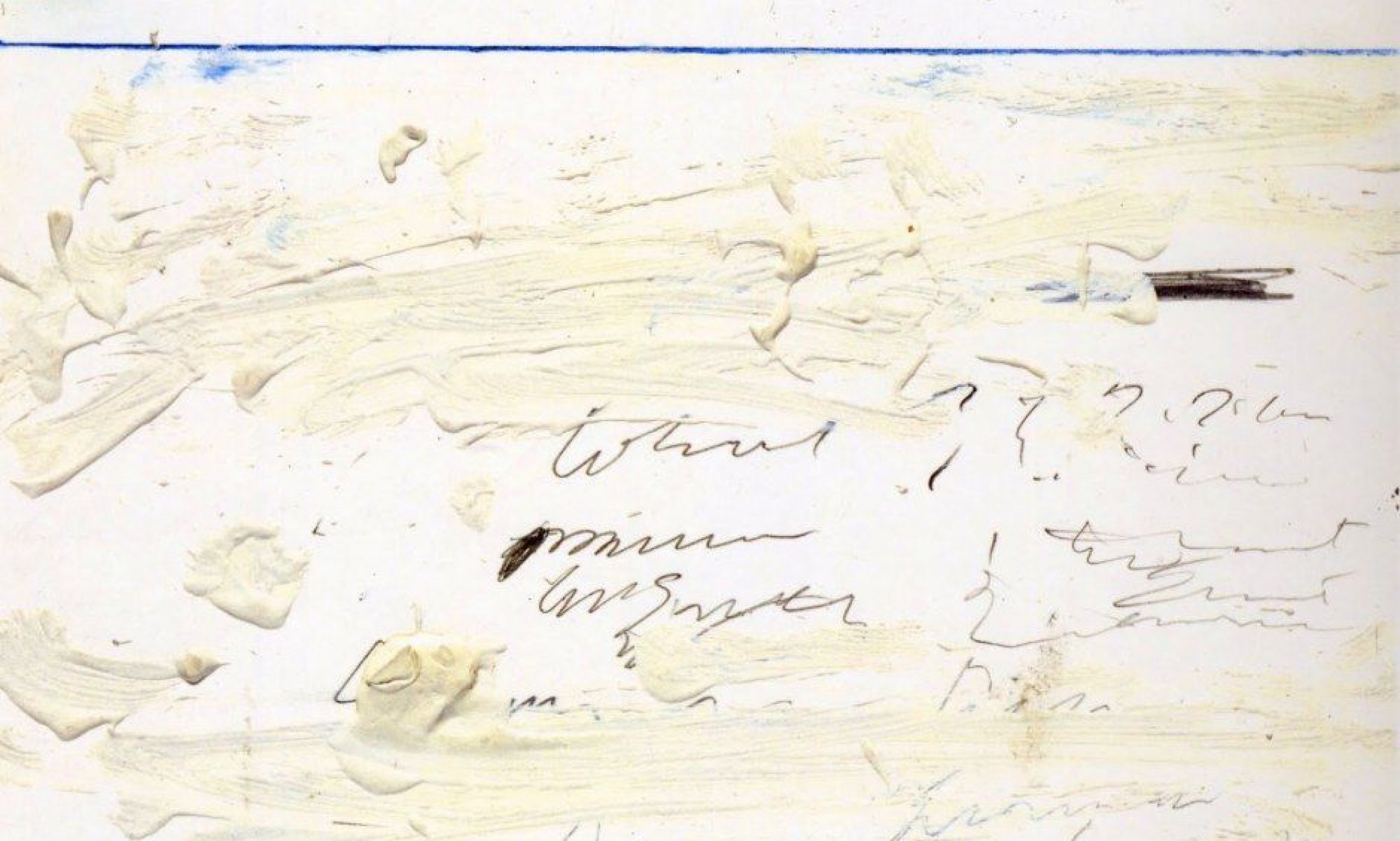The course will begin by developing a basic conceptual vocabulary in poetics, under the headings of scheme (formal and rhetorical arrangements of language, including meter) and trope (metaphor and other varieties of figuration). From there, we will embark on a series of week-by-week encounters with neighbor arts. The usual pattern will be to introduce a new art on Wednesday, with some poems and some short, theoretical readings, and then to set an exercise over the weekend, due in class on Monday. The Monday meeting will begin with a short workshop of selected exercises, the balance of the class then being given over to our guest, a practitioner of whatever art we are considering. What we do together that day will be largely up to them, ranging from abstracted rumination to painting, building, singing, etc.
*
Week 1
1.24 Introduction
1.26 Scheme
Week 2
1.31 Trope
2.2 Music
Week 3
2.7 Music ( Dmitri Tymoczko)
2.9 Image
Week 4
2.14 Image (Accra Shepp)
2.16 Photography
Week 5
2.21 Photography (Jeffrey Whetstone)
2.23 Drama
Week 6
2.28 Criticism interlude
3.2 Drama (Nathan Davis)
[SPRING BREAK]
Week 7
3.14 Criticism interlude / first essay due
3.16 Fiction
Week 8
3.21 Fiction (Kirstin Valdez Quade)
3.23 Dance
Week 9
3.28 Dance (Aynsley Vandenbroucke)
3.30 Film
Week 10
4.4 Film (Lynne Sachs)
4.6 Architecture
Week 11
4.11 Sculpture
4.13 Architecture (Mitch McEwan)
Week 12
4.18 Criticism interlude
4.20 Gesamtkunstwerk
Dean’s Date
5.3 Second essay due
*
The fundamental requirement for the class is careful preparation of the weekly READINGS. They will be relatively short, usually five poems and ten to fifteen pages of prose. (The prose will mostly be brief excerpts from theoretical texts.) We are unlikely to get to everything assigned in any given class, since a good poem can easily commandeer an hour. It will nonetheless be important to read everything carefully, make some notes, and do some soulful brooding—as our conversation ranges, we’ll want to be able to reach for anything that we have read in common.
Also vital to the class are the weekly EXERCISES. These are designed in collaboration with our visitors, and will ask you to work at the intersection between poetry and one of its neighbors. Imagination and experiment are the vital ingredients. Each exercise should also be accompanied by a brief, 300-word essay, explaining what you have done and its relation to the questions raised by the class. Exercises are due by email to jdolven@princeton.edu by 5 PM Sunday night. This allows me to have a look and decide which we might workshop the next day. The timing may be adjusted according to the needs of our visitor. You are allowed two late submissions (by class time on Monday) for the semester; please inform me by the deadline if you plan to use one of these permissions.
There will also be two five-page ESSAYS assigned, for the week after midterm and for Dean’s Date. We will carry our ethos of experiment into our prose, and consider a variety of possible structures and idioms for writing across media. A few sessions are reserved for considering the essay itself as a form.
Each member of the class will also be asked to provide two PROMPTS for discussion over the course of the semester—not formal presentations, just a very brief observation or question that will take us into one of the poems assigned.
Each week I will post a summary of our discussions to the COMMENT page on this site. Everyone is free to comment in turn on those posts, to add questions (or corrections) or afterthoughts or prophecies etc.
Assignments will be posted week by week on the website, and paper copies of all readings will be distributed in class. No laptops or tablets will be permitted during class time, and it is my hope that having paper in hand as we read outside of class will allow deeper immersion in our materials (though some resources, e.g. images and films, will be made available online as we go). The only book assigned is Edward Hirsch’s The Essential Poet’s Glossary, for reference. Grades will be calculated at the following percentages: 40% exercises*, 40% papers, 20% class participation. The class is pretty much plagiarism-proof, owing to its eccentricity, but please don’t take that as a challenge.
*Exercises will ordinarily be graded with a check; exceptional efforts and adventures will be recognized with a check-plus, and slacking off with a check-minus. At the end of the term, I will compute your grade for the two essays and class participation, then add one point for each check-plus (up to A) and subtract one point for each check-minus. (So you’ll see, the percentages above are an approximation, for bureaucratic purposes, but the formula is nonetheless strict: a base grade that is one third for each essay and a third for class participation, modified by the exercises as above.)
